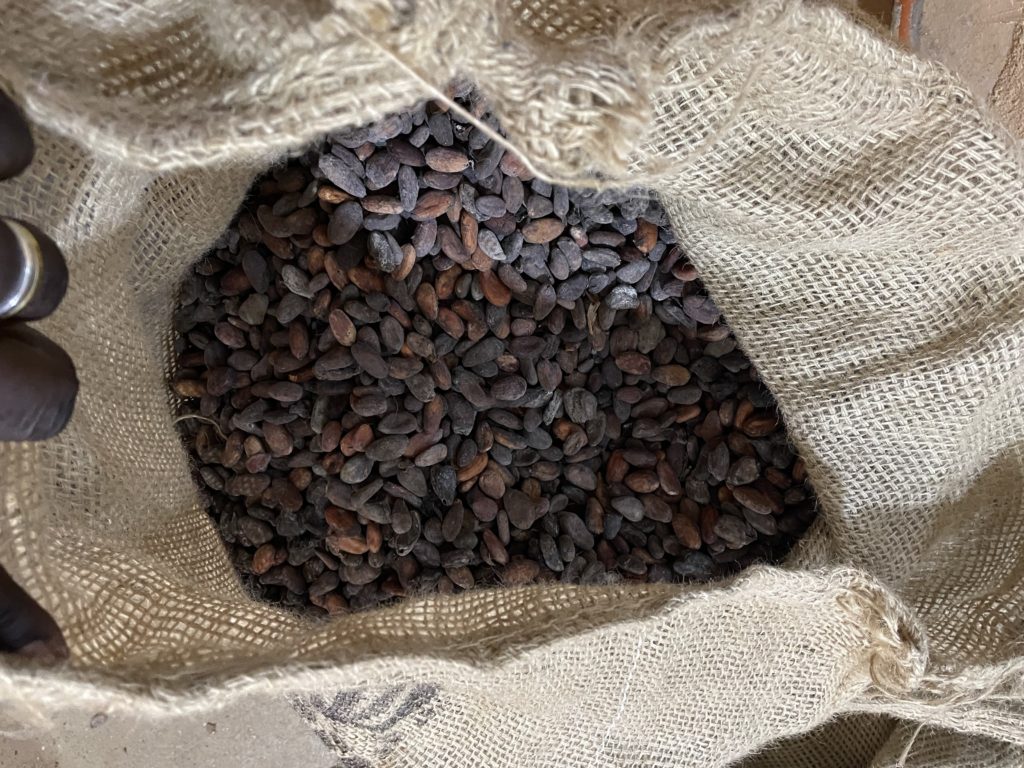The conversations in Abidjan made me hopeful. Young artists in their trades, from platforms of ideas to cosmetics are writing in indelible ink, the narrative of entrepreneurship with aspirations for local, regional, continental and global markets. There was a clear sense of creating opportunities for current and future generations.
As I listened, I could not help but think of the Mama Benz that ruled trade in West Africa from Togo. The legacy of their work was challenged by our collective inability to create the conditions for their daughters to continue with the wealth creation that was waiting for the next generation to take it further. That is a challenge that we need to resolve to enable prosperity, as a continuum, from one generation to the next.
Moreover, when the women spoke about their need, it was filled with a purpose. Each one, made a meaningful contribution to solve for access to tailored financial services. For some, it was about whether cards in Côte d’Ivoire and Burkina Faso had the same capabilities. For others, the level of sophistication of their businesses implied that we were underutilizing the resources that we have in the room. One could potentially consider training programs that leverage their skills to support the next generation of women-led businesses in the region. Creating opportunities for co-learning is at the heart of the transformative choice that we need to make. For some, in the informal sector is not a licence to devalue their knowledge and creativity. Their expertise in running businesses, accounting for their trade and being involved in cross-border trade represents an untapped asset for us to value what we have. One could imagine an academy with businesswomen as faculty.
![]()
![]() There is a wealth of knowledge, skills and expertise which is embedded in the practices that support businesses across the continent. Specifically in Abidjan, I was intrigued by the work being done my Mariam Diaby and Anouchka Wayoro in the cosmetics industry, acknowledging that mainstream products cannot necessarily do a split to accommodate African skin care requirements. This creates a unique opportunity to elevate the work done over centuries by African mothers to preserve their skin, those of their babies and their communities. The brand is rooted in the design of a business that sees a need, takes the gap, strengthens the value proposition and enables prosperity with a transformative idea. That idea was not about cosmetics but it was about the value chain in rice and shea butter, as well as other ingredients, used in the final product. Behind every ingredient is a women who is securing value for herself and her community.
There is a wealth of knowledge, skills and expertise which is embedded in the practices that support businesses across the continent. Specifically in Abidjan, I was intrigued by the work being done my Mariam Diaby and Anouchka Wayoro in the cosmetics industry, acknowledging that mainstream products cannot necessarily do a split to accommodate African skin care requirements. This creates a unique opportunity to elevate the work done over centuries by African mothers to preserve their skin, those of their babies and their communities. The brand is rooted in the design of a business that sees a need, takes the gap, strengthens the value proposition and enables prosperity with a transformative idea. That idea was not about cosmetics but it was about the value chain in rice and shea butter, as well as other ingredients, used in the final product. Behind every ingredient is a women who is securing value for herself and her community.
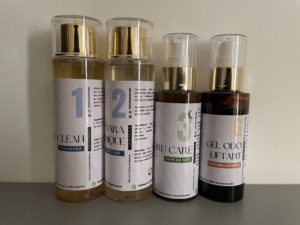
I have a strong appreciation for the Africa We Have. It is raw and polished, simple and sophisticated, individualistic and communitarian. It is at the intersection of these currents that entrepreneurs like Mariam, Anouchka and others increase the value to us, Ivorians, Africans and members of the diaspora the rich contribution of rural and urban value chains to the ecosystem. In the same vein, Ivonomad is connecting African traditions through games. Born from a passion in discovering the African continent and making it known to others through the embedded cultural tradition of board games, present in all cultures.
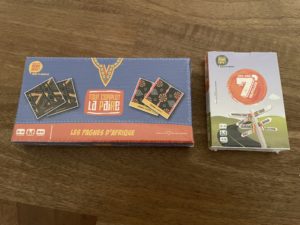
It is in this city, Abidjan, where I grew up there are two entrepreneurs who believe in the transformative power of ideas. Over the years, Andeka Oule has brought individuals from across the spectrum of society to talk about the transformative choice that they had had to make. He is made of gentle steel. His vision is to put Abidjan, Bouaké, Grand Bassam and Yamoussoukro on a global map for the transformative ideas that shape the daily lives of Ivorians, yet not too far from our neighbors in the regions and our continental and global communities. His vision reflects the powerful fact that the size of your dreams is not a reflection of where you were born. In each of these cities, he leverages the entrepreneurial skills of volunteers to raise the standard of what they believed possible. Tchonte Silué transforms young minds through reading. She is passionate about change in challenging learning environments. Book by book, story by story, she and her team bring to the imagination of young adults, places that they did not know existed. They are one-of-a-kind in a country that is yet to fully appreciate the scale of their humble and yet powerful endeavours. They understand the power of the transformative ideas turned into choices that can move the human needle toward progress.
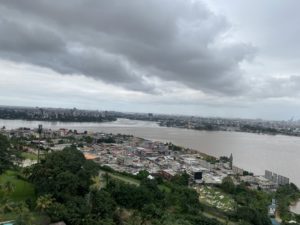
I also came to observe how in Agboville, Moussa « Cacao » brought together individual cocoa farmers to embrace two of the tools of the digital economy. An ID combined with a payment functionality. But it was never about the card, it was about the benefits of removing the friction between thieves and farmers on payday. It was about understanding the size of the prize and potentially creating a pathway for a structured conversation about ownership and the ways in which land becomes collateral for wealth creation. As we journey towards that higher level of growth, intermediary steps like cocoa transformation are creating employment for youth with a clear sense of added value.
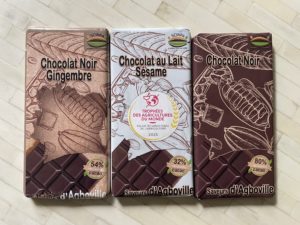
Transformation requires competencies. Maïmouna Sène leverages École parcours’ content to make financial education – the oil that greases the wheels of transformative choices – accessible to more. From Daloa to San Pedro via Agboville, they are strengthening adaptive skills to deepen the possibilities of what could be achieved with the same level of resources better utilized. École Parcours, created to make learning accessible to more, has been transforming educational content to reflect the needs of local communities. They sit at the intersection of the possibilities that come with incremental knowledge on budgeting and saving for example.
I just returned from the school of possibilities where resilience meets creativity. I am in deep appreciation of all that took time to educate me about their work and the realities that enable them to be creative. Young men and women embrace the constraints with the opportunities that are created. Progress, the only viable option, is made possible by their determination to work with what they have. In doing so, they are transforming our interaction with and appreciation for what we have.

